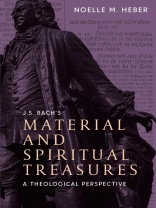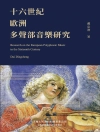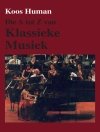In Johann Sebastian Bach’s Lutheran church setting, various biblical ideas were communicated through sermons and songs to encourage parishioners to emulate Christian doctrine in their own lives. Such narratives are based on an understanding that one’s lifetime on earth is a temporal passageway to eternity after death, where souls are sent either to heaven or hell based on one’s belief or unbelief.
Throughout
J. S. Bach’s Material and Spiritual Treasures, Bach scholar Noelle M. Heber explores theological themes related to earthly and heavenly ‘treasures’ in Bach’s sacred music through an examination of selected texts from Bach’s personal theological library. Thebook’s storyline is organised around biblical concepts that are accented in Lutheran thought and in Bach’s church compositions, such as the poverty and treasure of Christ and parables that contrast material and spiritual riches.
While focused primarily on the greater theological framework, Heber presents an updated survey of Bach’s own financial situation and considers his apparent attentiveness to spiritual values related to money. This multifaceted study investigates intertwining biblical ideologies and practical everyday matters in a way that features both Bach’s religious context and his humanity. This book will appeal to musicologists, theologians, musicians, students, and Bach enthusiasts.
NOELLE M. HEBER is a violinist and musicologist. She holds a Ph.D. in musicology from Utrecht University (The Netherlands).
İçerik tablosu
Introduction
Bach’s Material Treasures
The Servant Prince: Poverty of Christ
Mammon’s Chain: The Destructive and Redemptive Potentials of Material Wealth
The Afflicted Shall Eat: Tables Are Turned in Eternity
Spiritual Manna: The Lord Embraces the Poor
‘Blood Money’: The Coins That Bought Jesus’ Death
Bach’s Spiritual Treasures
Bibliography
Index
Yazar hakkında
NOELLE M. HEBER is a violinist and musicologist. She holds a Ph.D. in musicology from Utrecht University (The Netherlands).












